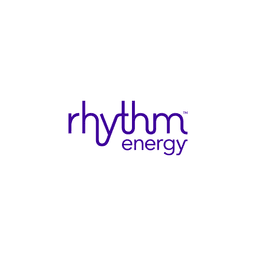Across the world, everyone from government officials to the average homeowner is taking renewable energy more seriously. While the cost of solar has dropped dramatically over the last decade, it remains a big commitment for homeowners and businesses trying to reduce their electricity bills.
One step that has been taken to increase interest is making the cost of cleaner power sources more affordable. In the United States, this is done with the help of solar incentives that help the typical family afford the installation costs of solar system for their home. These incentives usually come in the form of solar rebates, tax benefits, and/or performance-based incentives, and they can cut your solar costs by up to 50%!
Have we piqued your interest? Are you wondering what these solar incentives are? Keep reading to learn more about incentives for installing a solar energy system and how your project may qualify.
Who Can Qualify for Solar Incentives?
Several factors determine whether you are eligible for a solar incentive program, including:
Incentives that may be available in your state
Whether you owe taxes
Your yearly earnings
Indeed, certain states do not provide solar incentives. Solar can still make financial sense in certain areas, but not because of anything the state legislature does to assist homeowners who want to go solar. The good news is that everybody who earns enough to owe taxes is eligible for the federal tax credit.
Annual income describes how much money is owed in taxes. When all the criteria are met, a home or business owner can claim both federal and state solar tax credits. In some cases, these solar incentives can be claimed over several years if your tax liability is lower than the total amount of credits.
Solar Power Tax Incentives
When governments wish to encourage the use of solar power, lowering the tax burden on solar panels is a frequent method. On the other hand, governments may give tax breaks for home and business owners with a solar power system. Exemptions and credits are the two most common types of tax benefits.
Tax Exemption
A tax exemption for solar energy eliminates a tax that would otherwise be imposed. This lowers the cost of solar panel system ownership, encouraging households and businesses to use them. Many states in the United States utilize a sales tax and property tax exemption.
With a sales tax exemption, no sales tax is charged at the point of sale for a solar power system. This reduces the final cost of solar panels, making them more affordable.
Because home improvements add value to the property, they also increase the corresponding tax. However, many states offer a property tax exemption. They do not increase the property value after installing a solar power system.
Tax Credits
Another solar incentive is a federal tax credit that reduces the tax burden. Because it extends to everyone in the country, the federal solar tax credit is likely the most well-known example. This credit is currently 26% but will be reduced to 22% in 2023. So, if you're thinking of going solar for your home or business, don't wait too long.
A state tax credit is a reduction in the amount of tax you owe on a dollar-for-dollar basis. Similar to the federal ITC, a state solar tax credit allows you to deduct a percentage of the cost of your solar panel system from your state tax bill.
These figures can differ greatly per state, and some states have a limited amount of money. Many state (or utility-specific) rebates are limited to first-come, first-served.
Solar Power System Rebates
A rebate is a financial incentive for choosing renewable energy that is deducted from your initial charges. Solar subsidies are often distributed through government or utility company-run programs. Because there are eligibility restrictions, you should hire an expert to design and install your solar power system.
Solar rebates have several advantages for households and businesses. Unlike federal solar tax credits, they do not require proof of income to qualify. The solar rebate money is deducted from your total purchase price and deposited immediately into your bank account.
Solar Renewable Energy Certificates
Many states currently have renewable portfolio standards, which mandate that utilities purchase or create a particular percentage of their electricity from renewable energy sources, like solar power.
If you live in one of these states, your solar panels will generate solar renewable energy certificates (SRECs) for the amount of electricity they produce.
Energy companies may buy your SRECs to maintain compliance with state-level renewable energy requirements, provided that each SREC represents the correct amount your solar panels generate. Selling your SRECs can help you earn hundreds or thousands of dollars every year, depending on the SREC market where you live. Your solar installer should provide information on companies that can help you monetize your SRECs.
Performance-Based Incentives
The performance-based incentives, or PBIs, are solar incentives that pay you a per-kilowatt-hour credit for your system's electricity.
PBI programs differ from SREC programs in one crucial way -- although SRECs represent the environmental benefits of solar generation, like emission reductions, PBI programs give a financial incentive for the power generated.
PBIs, unlike SRECs, aren't required to be sold through a market, and incentive rates are set at the time the solar energy system is completed. PBIs can be used in place of or in addition to net metering policies.
Net Metering
The net metering program or solar buyback program, which is available in almost every state, allows you to sell excess solar electricity to your local utility or retail energy provider. This exchange can be in the form of credits or cash.
With these specific solar incentives, it is possible to have $0 or even negative electricity bills every month. Like the tax credit, net metering helps reduce the time it takes for the solar energy system to be paid for.
Solar Feed-In Tariff
Similar to net metering, homeowners can earn money for solar electricity produced with feed-in tariffs. However, sometimes this incentive allows you to receive cash instead of credits. In some cases, you can sell your solar power at higher rates, making it one of the most profitable solar incentives. Unfortunately, the solar feed-in tariff is not available nationwide.
Commercial Solar Incentives
There are many commercial incentives for installing solar panels, too. Businesses that install solar panels can take advantage of the federal solar tax credit, but they can also take advantage of laws that allow them to deduct some capital expenses.
The Modified Accelerated Cost Recovery System (MACRS) and bonus depreciation are two specific tax deductions. Both allow businesses to deduct solar expenses from their earnings, lowering their tax burden when the system is installed.
Businesses can considerably minimize the time it takes to recuperate the costs of a solar energy system by using both MACRS and bonus depreciation.
Getting Started with Renewable Energy
Solar incentives frequently change in terms of amount and availability. The safest approach is to get solar estimates from local installers that have experience working with state and local agencies. They will be up-to-date on available incentives and help apply for any eligible financial help.
If you're unsure where to start, try the SolarReviews solar panel calculator. It can estimate the size, cost, and profit after incentives of a system for your roof and provide live quotes from installers.
To learn more about specific solar incentives or incentives by state, go to The Database of State Incentives for Renewables and Efficiency. Or look for local solar advocates in your state who campaign to pass effective laws to help people go solar.
Renewable Energy Plans in Texas
Using renewable energy seems like a simple, eco-friendly solution to fossil fuel-driven traditional electricity. But you still need to be aware of where the supply is coming from. Lucky for Texans, the state gives the power to its residents to choose where their energy comes from. At Rhythm, we provide electricity plans supported by renewable energy!
If you already have solar panels installed, check out our Rooftop Solar Buyback plan. If your home produces more energy than you need, other families can benefit from the excess solar power. While you're helping other families, we send it back to you in the form of buyback credits that appear on your monthly statement.
Share the power of the Texas sun with your neighbors! Call us to get started today.




